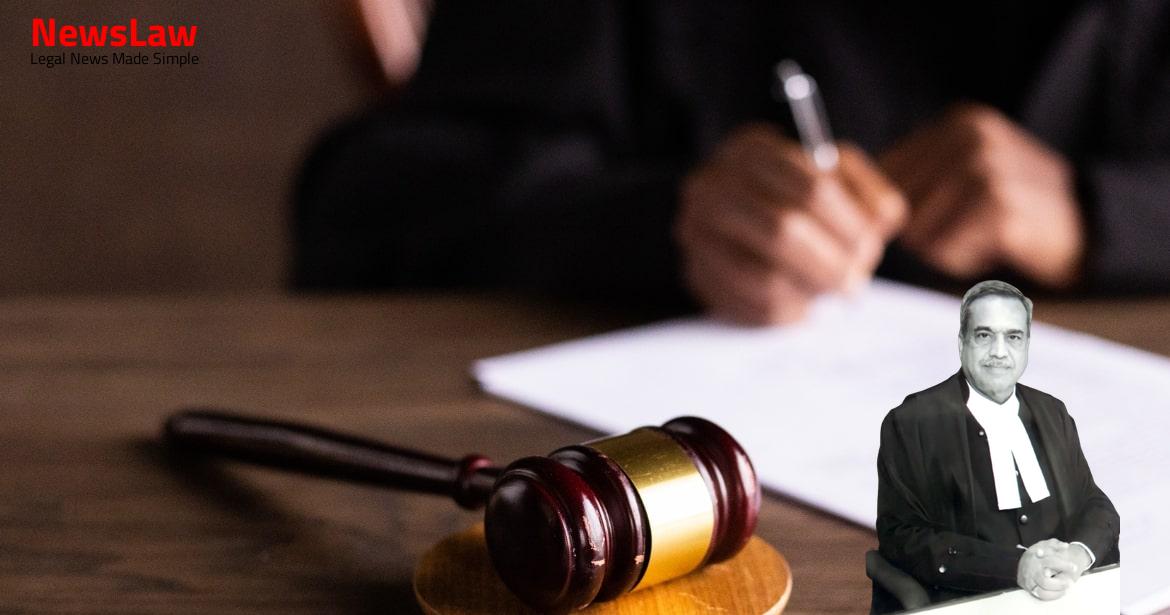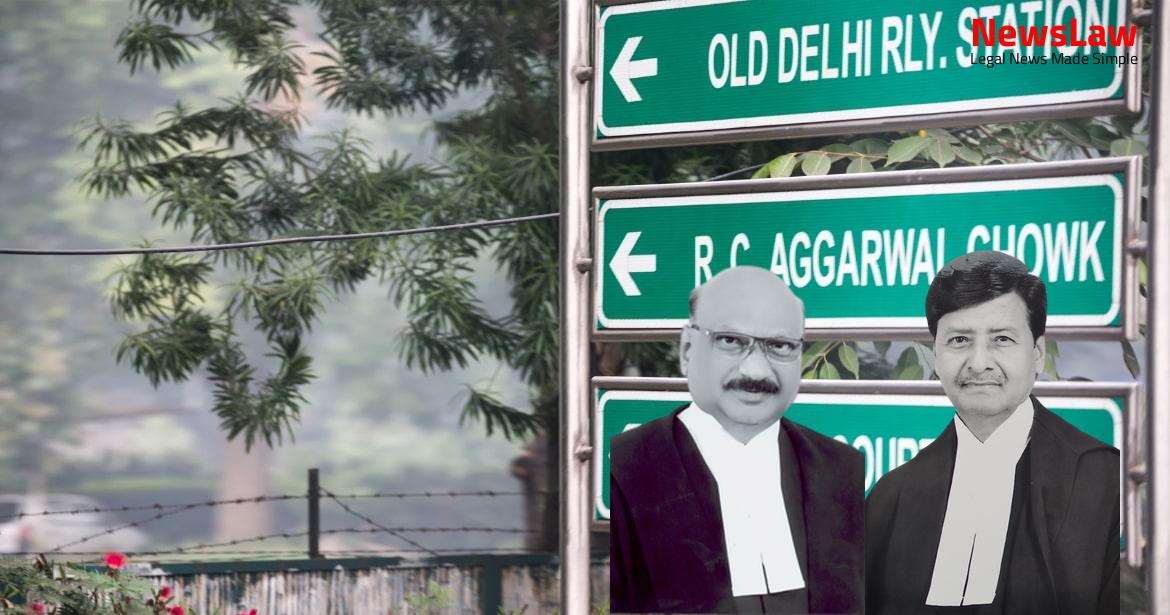The High Court’s decision to reverse a conviction based on insufficient evidence showcases the importance of legal analysis in criminal cases. This case delves into the intricacies of proving culpability under specific sections of the law, highlighting the need for concrete evidence to support convictions. Follow along for a detailed exploration of the court’s reasoning behind this significant legal outcome.
Facts
- Accused No. 1 passed away during the trial, and proceedings continued against Accused No. 2, the son of Accused No. 1.
- An FIR was filed against Accused No. 1 and Accused No. 2 after a raid on a rice mill.
- Charges were framed against Accused No. 1 and Accused No. 2 under relevant sections of the Bonded Labour System (Abolition) Act, 1976 and the Scheduled Castes and the Scheduled Tribe (Prevention of Atrocities) Act, 1989.
- The High Court of Judicature at Madras convicted the Appellant/Accused No. 2 under Sections 16 and 17 of the Bonded Labour System (Abolition) Act, 1976.
- The High Court’s decision overturned the acquittal of the Appellant by the Principal Sessions Judge at Kancheepuram, Chengalpattu.
- The prosecution’s case involved a raid at the Murugesa Naicker Selvakumar Rice Mill where bonded labourers were found, leading to necessary orders for their release.
- The High Court convicted the Appellant under Sections 16 and 17 of the Act and sentenced him to 3 years of rigorous imprisonment.
- The High Court found evidence of ‘Bonded Labourers’ working at the Rice Mill and being denied their wages.
- The High Court rejected the Appellant’s claim of not being connected to the Mill as per witness testimonies.
- The Appellant was acquitted of all charges by the Sessions Court due to lack of evidence linking him to the Rice Mill.
- The State did not appeal the Sessions Court’s decision of acquittal.
- The prosecution failed to adequately link the Appellant to the functioning of the Rice Mill based on evidence presented.
- The Trial Court also could not prove the case against the Appellant under Section 16 of the Act.
- The Investigating Officer did not verify the Appellant’s residence, leading to lack of evidence linking him to the Rice Mill business.
Also Read: Supreme Court Upholds Rejection of Plaint Under Order VII Rule 11 of CPC: A Critical Analysis
Arguments
- 1. The name of the Rice Mill is M/s Selvakumar Rice Mill.
- The Appellant’s representative argued that there is no evidence proving that the Appellant compelled anyone into bonded labor.
- Various witness testimonies, including those of the Investigation officer and the District Revenue Officer, were discussed.
- The State’s standing counsel and advocates for Respondent No. 1 presented their arguments.
- The central question was determining the Appellant’s involvement in the offenses under Sections 16 and 17 of the Act.
- To be convicted under Section 16, it must be proven that the accused coerced the victim into bonded labor.
Also Read: Validity of Debt and Enforcement of Section 138 NI Act
Analysis
- The District Revenue Officer and the Investigation Officer did not have any evidence against the Appellant in relation to the offence under Sections 16 and 17 of the Act.
- The High Court’s reasoning that the Rice Mill belonging to the Appellant’s father and bearing the Appellant’s name is not sufficient to convict the Appellant.
- There is evidence regarding the incident in the factory owned by the deceased Accused No 1, but not directly implicating the Appellant.
- Examining the FIR and other evidence did not establish any relationship between the Appellant and the victims for enforcing bonded labor or advancing bonded debt.
- The absence of specific allegations against the Appellant, and his claim of not residing with his father, further weakens the case against him.
- The judgment of acquittal of the Appellant was wrongly reversed by the High Court, as there was insufficient evidence to convict him under Sections 16 and 17 of the Act.
- Compelling any person to render bonded labour punishable with imprisonment up to three years and fine up to two thousand rupees.
- Advancing bonded debt after the commencement of the Act punishable with imprisonment up to three years and fine up to two thousand rupees.
- The liability of fine under Sections 16 and 17 of the Act must be attached to the estate (the Rice Mill) where the laborers were employed.
- The son of the deceased Accused No.1, who has succeeded to the business, can be burdened with the financial liability even though he is not culpable.
- The concept of vicarious liability does not apply in criminal prosecution, but the Appellant can still be held financially responsible.
- The defense taken by Accused No.1 during the trial did not provide proof that the workers were not bonded laborers, as alleged.
- The enacted social welfare legislation and the peculiar facts of the case justify the compensation of Rs. 50,000/- to each of the workmen ordered by the High Court.
Also Read: Enlargement on Bail in Illegal Mining Case
Decision
- The Appellant is acquitted of all charges and bail bonds, if any, stand discharged.
- The Appellant is directed to pay Rs. 50,000/- to each of the workmen within three months.
- The payment to the workmen is required regardless of the acquittal of the Appellant for the conviction under Sections 16 and 17 of the Act.
Case Title: SELVAKUMAR Vs. MANJULA (2022 INSC 978)
Case Number: Crl.A. No.-001603-001604 / 2022



